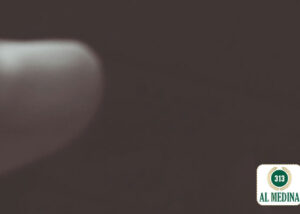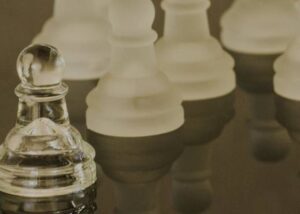Did Sayidina Abu Bakr know the gender of his unborn child
Quran
Hadith
Islamic Text
بِسْمِ اللَّهِ الرَّحْمَنِ الرَّحِيمِ
In the Name of Allah Most Merciful Most Kind
Short Answer
No, it is not true that Sayidina Abu Bakr knew the gender of his unborn child. Sayidina Abu Bakr was intensely humble, pious and knowledgeable. Thus, he would never claim to have knowledge of the unseen (Ilm al-Ghayb). Especially when it comes to knowing about an unborn child. Rather he mentioned his conjecture (Dhann) which turned out to be true.
Explanation
أَخْبَرَنَا مَالِكٌ، أَخْبَرَنَا ابْنُ شِهَابٍ، عَنْ عُرْوَةَ، عَنْ عَائِشَةَ رَضِيَ اللَّهُ عَنْهَا، أَنَّهَا قَالَتْ: إِنَّ أَبَا بَكْرٍ كَانَ نَحَلَهَا جُذَاذَ عِشْرِينَ وَسْقًا مِنْ مَالِهِ بِالْعَالِيَةِ، فَلَمَّا حَضَرَتْهُ الْوَفَاةُ، قَالَ: وَاللَّهِ يَا بُنَيَّةُ، مَا مِنَ النَّاسِ أَحَبُّ إِلَيَّ غِنًى بَعْدِي مِنْكِ، وَلا أَعَزُّ عَلَيَّ فَقْرًا مِنْكِ، وَإِنِّي كُنْتُ نَحَلْتُكِ مِنْ مَالِي جُذَاذَ عِشْرِينَ وَسْقًا، فَلَوْ كُنْتِ جَذَذْتِيهِ، وَاحْتَزْتِيهِ كَانَ لَكِ، فَإِنَّمَا هُوَ الْيَوْمَ مَالُ وَارِثٍ، وَإِنَّمَا هُوَ أَخُوكِ وَأُخْتَاكِ، فَاقْسِمُوهُ عَلَى كِتَابِ اللَّهِ عَزَّ وَجَلَّ، قَالَتْ: يَا أَبَتِ، وَاللَّهِ لَوْ كَانَ كَذَا وَكَذَا لَتَرَكْتُهُ، إِنَّمَا هِيَ أَسْمَاءُ، فَمَنِ الأُخْرَى؟ قَالَ: ذُو بَطْنِ بِنْتِ خَارِجَةَ أُرَاهَا جَارِيَةً، فَوَلَدَتْ جَارِيَةً
Malik informed us from Ibn Shihab, who informed from Urwah from (Sayidah) Aishah (May Allah be pleased with her) that she said: Abu Bakr had given her twenty portioned Wasqs of his wealth in al-Aliyah. When death approached him, he said: By Allah, O my daughter, there is no person after me that I would love to see wealthy other than you. And no poverty is more troubling to me than yours. I had given you twenty portioned Wasqs of my wealth. If you had cut it and possessed it, then it would have been yours. Rather today it is the wealth of the heir. And that is your brother and two sisters. So, divide it according to the Book of Allah, the Mighty and Majestic. She said: O my father, by Allah, if it were such and such, I would have left it. It is only Asma, so who is the other? He said: The one in the womb of Bint Kharijah, I think it is a girl. Thereafter she gave birth to a girl. (Muwatta Malik, 808)
The narration above is Sahih. All of the narrators are found in Sahih al-Bukhari. Some people use this narration to claim that Sayidina Abu Bakr knew the gender of his unborn child. It is clearly not the case. Rather, Sayidina Abu Bakr was speaking about inheritance and in that context mentioned that he thought or suspected that his unborn child was going to be a girl. And it turned out to be the case.
Weakening Karamaat
As Sunni Muslims we believe in the Karamaat confirmed in Quran and Sunnah. And there are sound narrations establishing Karamaat for Sahabah. As for subsequent claims of Karamaat by later people, it is not required for a Muslim to believe them. Rather we are obliged to reject some of them.
In any case, it is a mistake to use the above narration to claim that Sayidina Abu Bakr knew the gender of his unborn child and claim a Karamah. Since it weakens the notion of Karamaat. Everyone knows that it is an everyday activity for people to conjecture or guess what the gender of an unborn child may be. And since there is a percent chance of being correct, it is common for people to guess correctly.
To present such mundane matters as Karamaat will only result in undermining the concept of Karamaat. It is also a colossal misrepresentation of the blessed Sahaabi Sayidina Abu Bakr. Due to his intense piety and humility, he (May Allah Most High be pleased with him) would not claim Karamaat for himself. And would never claim to have knowledge that is restricted in Quran and Sunnah.
Opposing Quran and Sunnah
إِنَّ اللَّهَ عِنْدَهُ عِلْمُ السَّاعَةِ وَيُنَزِّلُ الْغَيْثَ وَيَعْلَمُ مَا فِي الْأَرْحَامِ وَمَا تَدْرِي نَفْسٌ مَاذَا تَكْسِبُ غَدًا وَمَا تَدْرِي نَفْسٌ بِأَيِّ أَرْضٍ تَمُوتُ إِنَّ اللَّهَ عَلِيمٌ خَبِيرٌ
Indeed, Allah has knowledge of the Hour. He sends down the rain and knows what is in the wombs. No soul knows what it will earn tomorrow, and no soul knows in what land it will die. Indeed, Allah is Knowing and Aware. (Surah Luqman 34)
Allah Most High attributed knowledge of what is in the womb to Him. And the blessed Prophet made it clear that such knowledge is restricted to Allah (Most High). It is inconceivable to think that someone like Sayidina Abu Bakr would claim to have such knowledge.
عَنِ ابْنِ عُمَرَ رَضِيَ اللَّهُ عَنْهُمَا، عَنِ النَّبِيِّ صَلَّى اللهُ عَلَيْهِ وَسَلَّمَ، قَالَ: مَفَاتِيحُ الغَيْبِ خَمْسٌ، لاَ يَعْلَمُهَا إِلَّا اللَّهُ: لاَ يَعْلَمُ مَا تَغِيضُ الأَرْحَامُ إِلَّا اللَّهُ، وَلاَ يَعْلَمُ مَا فِي غَدٍ إِلَّا اللَّهُ، وَلاَ يَعْلَمُ مَتَى يَأْتِي المَطَرُ أَحَدٌ إِلَّا اللَّهُ، وَلاَ تَدْرِي نَفْسٌ بِأَيِّ أَرْضٍ تَمُوتُ إِلَّا اللَّهُ، وَلاَ يَعْلَمُ مَتَى تَقُومُ السَّاعَةُ إِلَّا اللَّهُ
(Sayidina) Ibn Umar (May Allah be pleased with them both) narrated that the Prophet ﷺ said: The keys of the unseen are five and no-one knows them except Allah. No-one knows what the womb decreases except Allah. No-one knows what will happen tomorrow except Allah. No-one knows when rain will come except Allah. No soul knows where he will die but Allah (knows). And no-one knows when the Hour will be established except Allah. (Sahih al-Bukhari, 7379)
The Quran and authentic Sunnah are clear regarding the issue of knowledge of what is in the womb. It is restricted knowledge. Thus, we do not say that Sayidina Abu Bakr knew the gender of his unborn child. Rather he was speaking about gender in an appropriate context and guessed that it may be a girl. He (May Allah Most High be pleased with him) never claimed knowledge of it. The Sahabah did not claim to have Ilm al-Ghayb (knowledge of the unseen).
The correct understanding
Scholars of Ahl al-Sunnah explained that the narration above demonstrates conjecture not knowledge. Therefore, we do not believe Sayidina Abu Bakr knew the gender of his unborn child. Rather he was guessing it. And Allah (Most High) made it occur. He speculated it was going to be a daughter, and it was so.
فَصَدَّقَ اللَّهُ ظَنَّ أَبِي بَكْرٍ الصِّدِّيقِ رَضِيَ اللَّهُ عَنْهُ بِمَا قَالَهُ وَجَعَلَ ذَلِكَ كَرَامَةً لَهُ. (كرامات الأولياء)
So Allah confirmed the conjecture of Abu Bakr al-Siddiq (May Allah be pleased with him) regarding what he said. And he made it a Karamah for him. (Abu al-Qasim al-Laalakai 418H, Karamaat al-Awliyaa).
فَهَذَا مِنْهُ – رَضِيَ اللَّهُ عَنْهُ – ظَنٌّ لَمْ يُخَطِّئْهُ. (الاستذكار)
This is a guess from him (May Allah be pleased with him) that did not let him down. (Abu Amr Ibn Abd al-Barr 463H, al-Istidhkaar).
Based on a dream
Sayidina Abu Bakr speculated regarding the gender of his unborn child. He never claimed to know it. Even this speculation was potentially based on a sound means. Some scholars suggested it may have been based upon a dream that Sayidina Abu Bakr interpreted.
واللهُ أَعْلَمُ أَن أبا بَكْرٍ رأى ذَلِكَ رُؤْيَا فتَأَوَّلَهَا، وكَانَ مِنْ أَعْبَرِ النَّاسِ للرُّؤْيَا. (تفسير الموطأ)
Allah knows best, (it may be) that Abu Bakr saw it in a dream and interpreted it. And he was one of the most knowledgeable people in interpreting dreams. (Imam Abu al-Mutarrif al-Qanazi 413H, Tafseer al-Muwatta).
فَكَانَ كَمَا ظَنَّ رَضِيَ اللَّهُ عَنْهُ سُمِّيَتْ أُمَّ كُلْثُومٍ، قَالَ ابْنُ مُزَيْنٍ: قَالَ بَعْضُ فُقَهَائِنَا وَذَلِكَ لِرُؤْيَا رَآهَا أَبُو بَكْرٍ. (شرح الزرقاني على موطأ الإمام مالك)
It was as he guessed (May Allah be pleased with him). She was named Umm Kulthum. Ibn Muzayn said: Some of our jurists said that this was because of a dream that Abu Bakr saw. (Imam al-Zurqani 1099H, Sharh al-Muwatta).
Ilm al-Ghayb is only for Prophets
I have written many articles reminding Muslims of the fact that knowledge of the unseen is only given to Prophets. This is unequivocally proven through Quran, Hadith and the understanding of classical scholars. Righteous people, even if they are great Sahabah, do not have Ilm al-Ghayb. Therefore, we do not say Sayidina Abu Bakr knew the gender of his unborn child. Since that is from the unseen.
استثنى فقال: {إِلَّا مَنِ ارْتَضَى مِنْ رَسُولٍ} قال أبو إسحاق: معناه: أنه لا يظهر على غيبه إلا الرُّسُلَ؛ لأن الرسل يستدل على نبوتهم بالآية المعجزة، وبأن يخبر بالغيب، فيعلم بذلك أنهم قد خالفوا غير الأنبياء. (التَّفْسِيرُ البَسِيْط)
He (Most High) established an exception saying: Except whom He is pleased with amongst the Messengers. Abu Ishaq said: Its meaning is that He (Most High) does not reveal His unseen except to the Messengers. Since the Messengers prove their prophethood by miraculous signs. And by informing of the unseen. So, by that, it is known from that that they are different to people who are Prophets. (Imam Abu al-Hasan al-Wahidi 468H, at-Tafsir al-Basit).
So many misconceptions
Many Muslims are completely misled regarding Karamat. They harbor so many misconceptions. This is due to the prevalence of these misconceptions in our communities and the absence of voices to correct them. Since, anyone who attempts to correct them is immediately branded deviant and attacked.
However, sincere Muslims must not be deterred by this. When people become reluctant to speak the Haqq, not only do they fail in their own duty, but they allow misguidance to spread. Therefore, those who are truly devoted to Allah (Most High) will speak against misguidance despite the challenges they may face.
وَأَمَّا أُمَّتُهُ؛ فَكُلُّ وَاحِدٍ مِنْهُمْ غَيْرُ مَعْصُومٍ، بَلْ يَجُوزُ عَلَيْهِ الْغَلَطُ وَالْخَطَأُ وَالنِّسْيَانُ، وَيَجُوزُ أَنْ تَكُونَ رُؤْيَاهُ حُلْمًا، وَكَشْفُهُ غَيْرَ حَقِيقِيٍّ وَإِنْ تَبَيَّنَ فِي الْوُجُودِ صِدْقُهُ، وَاعْتِيدَ ذَلِكَ فِيهِ وَاطُّرِدَ؛ فَإِمْكَانُ الْخَطَأِ وَالْوَهْمِ بَاقٍ، وَمَا كَانَ هَذَا شَأْنُهُ لَمْ يَصِحَّ أَنْ يُقْطَعَ به حكم. وَأَيْضًا؛ فَإِنْ كَانَ مِثْلُ هَذَا مَعْدُودًا فِي الِاطِّلَاعِ الْغَيْبِيِّ؛ فَالْآيَاتُ وَالْأَحَادِيثُ تَدُلُّ عَلَى أَنَّ الْغَيْبَ لَا يَعْلَمُهُ إِلَّا اللَّهُ، كَمَا فِي الْحَدِيثِ مِنْ قَوْلِهِ -عَلَيْهِ السَّلَامُ- فِي خَمْسٍ لَا يَعْلَمُهُنَّ إِلَّا اللَّهُ، ثُمَّ تَلَا: {إِنَّ اللَّهَ عِنْدَهُ عِلْمُ السَّاعَةِ وَيُنَزِّلُ الْغَيْثَ وَيَعْلَمُ مَا فِي الْأَرْحَامِ}. [لُقْمَانَ: 34] إِلَى آخِرِ السُّورَةِ. وَقَالَ فِي الْآيَةِ الْأُخْرَى: {وَعِنْدَهُ مَفَاتِحُ الْغَيْبِ لَا يَعْلَمُهَا إِلَّا هُوَ} [الْأَنْعَامِ: 59]
وَاسْتَثْنَى الْمُرْسَلِينَ فِي الْآيَةِ الْأُخْرَى بِقَوْلِهِ: {عَالِمُ الْغَيْبِ فَلا يُظْهِرُ عَلَى غَيْبِهِ أَحَدًا، إِلَّا مَنِ ارْتَضَى مِنْ رَسُولٍ} الْآيَةَ [الْجِنِّ: 26، 27]. فَبَقِيَ مَنْ عَدَاهُمْ عَلَى الْحُكْمِ الْأَوَّلِ، وَهُوَ امْتِنَاعُ عِلْمِهِ. وَقَالَ تَعَالَى: {وَمَا كَانَ اللَّهُ لِيُطْلِعَكُمْ عَلَى الْغَيْبِ} الْآيَةَ [آلِ عِمْرَانَ: 179]. وَقَالَ: {قُلْ لَا يَعْلَمُ مَنْ فِي السَّمَاوَاتِ وَالْأَرْضِ الْغَيْبَ إِلَّا اللَّهُ} [النَّمْلِ: 65]. وَفِي حَدِيثِ عَائِشَةَ: وَمَنْ زَعَمَ أَنَّ مُحَمَّدًا يَعْلَمُ مَا فِي غدٍ؛ فَقَدْ أَعْظَمَ الفرية على الله. وَقَدْ تَعَاضَدَتِ الْآيَاتُ وَالْأَخْبَارُ وَتَكَرَّرَتْ فِي أَنَّهُ لَا يَعْلَمُ الْغَيْبَ إِلَّا اللَّهُ، وَهُوَ يُفِيدُ صِحَّةَ الْعُمُومِ مِنْ تِلْكَ الظَّوَاهِرِ، حَسْبَمَا مَرَّ فِي بَابِ الْعُمُومِ مِنْ هَذَا الْكِتَابِ، فَإِذَا كَانَ كَذَلِكَ؛ خَرَجَ مَنْ سِوَى الْأَنْبِيَاءِ مِنْ أَنْ يَشْتَرِكُوا مَعَ الْأَنْبِيَاءِ -صَلَوَاتُ اللَّهِ عَلَيْهِمْ- فِي الْعِلْمِ بِالْمُغَيَّبَاتِ
وَمَا ذُكِرَ قَبْلُ عَنِ الصَّحَابَةِ أَوْ مَا يُذْكَرُ عَنْهُمْ بِسَنَدٍ صَحِيحٍ؛ فَمِمَّا لَا يَنْبَنِي عَلَيْهِ حُكْمٌ، إِذْ لَمْ يَشْهَدْ لَهُ رَسُولُ اللَّهِ -صَلَّى اللَّهُ عَلَيْهِ وَسَلَّمَ- وَوُقُوعُهُ عَلَى حَسَبِ مَا أَخْبَرُوهُ هُوَ مِمَّا يُظَنُّ بِهِمْ، وَلَكِنَّهُمْ لَا يُعَامِلُونَ أَنْفُسَهُمْ إِلَّا بِأَمْرٍ مُشْتَرَكٍ لِجَمِيعِ الْأُمَّةِ، وَهُوَ جَوَازُ الْخَطَأِ، لِذَلِكَ قَالَ أَبُو بَكْرٍ: “أَرَاهَا جَارِيَةً”؛ فَأَتَى بِعِبَارَةِ الظَّنِّ الَّتِي لَا تُفِيدُ حُكْمًا. (الموافقات في أصول الفقه)
As for his ﷺ nation, not one of them is infallible. Rather, it is possible for him to make mistakes, blunder, or forget. It is also possible for his dream to be unrealised, and his Kashf to be false. Even if it were (at times) proven true in reality. And became common for him and the norm. Still, the possibility of error and delusion remains. Since this is the case, it is not valid to make a definitive ruling based on it.
Also, if something like this is counted as knowing the unseen (Ghayb), then the verses and Hadith narrations prove that the unseen is known only to Allah. As in the Hadith in which he ﷺ mentioned five things that no one knows except Allah, then he recited: Indeed, Allah has knowledge of the Hour. He sends down the rain and knows what is in the wombs. [Surah Luqman: 34] to the end of the Surah. And He said in another verse: With Him are the keys of the unseen. None knows them except Him. [Surah al-An’aam: 59].
He (Most High) excluded the Messengers in another verse by saying: The knower of the unseen, He does not make the unseen apparent to anyone. Except whom he is pleased with from the Messengers. (Surah al-Jinn, 26 -27). So, everyone besides them remained under the first ruling. Namely, not having knowledge of it. The Most High said: And Allah does not reveal the unseen to you. (Surah Ali Imran, 179). And He said: Say, no one in the Heavens or Earth knows the unseen except Allah. (Surah al-Naml, 65).
In the Hadith of (Sayidah) Ayeshah: Whoever claims that Muhammad ﷺ knows what will happen tomorrow has committed a great fabrication against Allah. Verses and narrations have repeatedly confirmed that no one knows the unseen except Allah. Which confirms the generality of these apparent matters. As mentioned in the chapter on generality in this book. If this is the case, then no one other than the Prophets can share with the Prophets (May Allah bless them) in knowledge of the unseen.
What was mentioned previously about the Sahabah, or what is mentioned about them with a sound chain (Sanad), is something upon which no ruling can be based. Since the Messenger of Allah ﷺ did not testify to it. Its occurrence, according to what they reported, is something that can be plausible regarding them. However, they do not express themselves except in a manner that is common to the entire Ummah. Which dictates the possibility of error. Therefore, Abu Bakr said: I think it is a girl. He used an expression of doubt that does not provide a ruling. (Imam al-Shatibi 790H, al-Muwafaqaat).
Imam al-Shatibi explained that the Sahabah having special ranks and Karamaat is much more likely or plausible for them. Yet, they did not make such claims. Rather they expressed themselves and behaved in a manner that is common to the Muslims.
Which makes it even more shocking to see later Muslims behaving as they have knowledge of the unseen (Ilm al-Ghayb) or Karamaat (miracles). Or their followers making such claims for them. This has led to widespread misguidance and even confusion amongst many in the Ummah.
Restricted knowledge
Some knowledge is restricted from the Prophets too. Since only Allah (Most High) has all knowledge. No-one can share this attribute with Him (Most High). So, Muslims must be very careful when speaking about knowledge of the unseen (Ilm al-Ghayb). And not attribute it incorrectly.
ومن فوائده الرد على الحرالي المغربي الزاعم أنه استخرج من علم الحرف وقت خروج الدجال ووقت طلوع الشمس من مغربها مع أن هذه تحديدات وعلوم استأثر الله بها عن سائر أنبيائه ورسله فضلًا عن من دونهم. (القناعة في ما يحسن الإحاطة من أشراط الساعة)
Among the benefits is a refutation of al-Harali al-Maghribi. The one who claimed that he derived from the science of letters the time of the emergence of the Antichrist (Dajjal) and the time of the sun rising from the west. Despite these specifications and sciences being amongst that which Allah has restricted to Himself. Even from all of His prophets and Messengers, let alone those below them. (Imam al-Sakhaawi 902H, al-Qana’ah).
Using science
The entire discussion above relates to speaking about the unseen. It is not relevant to using science to speak about matters or make speculative predictions. There is a colossal difference between a person claiming to have special gifts and spiritual ranks and thus speaking about the unseen. And someone making no such claims and using physical, practical means to speak about observable matters.
وإلا جائز أن يقال: إنه يعلم بعض هذه الأشياء بأعلام؛ من نحو المطر أنه متى يمطر، أو ما في الأرحام: أنه ولد وأنه ذكر أو أنثى. (تفسير الماتريدي)
Otherwise, it is permissible to say: He knows some of these things by signs. Such as when the rain will fall. Or what is in the wombs: whether it is a child and whether it is male or female. (Imam Abu Mansur al-Maturidi 333, Tawelaat Ahl al-Sunnah).
من يخبر بالغيب أو من يدعي معرفته فما كان هذا سبيله لا يجوز ويكون تصديقه كفرا. أما أمر الأهلة فليس من هذا القبيل إذ معتمدهم فيه الحساب القطعي فليس من الأخبار عن الغيب أو دعوى معرفته في شيء. (حاشية الطحطاوي على مراقي الفلاح)
Whoever speaks about the unseen or claims to know it, is not permitted if this is his method. And believing him is considered Kufr. As for the matter of the crescent moon, it is not of this type, as their source is definitive calculations. Thus, it is not news of the unseen or a claim to know it in any way. (Imam Ahmad bin Muhammad al-Tahtawi 1231H, Haashiyah ala Maraaqi).
Conclusion
We do not say that Sayidina Abu Bakr knew the gender of his unborn child. Firstly, this is not supported by the narration regarding this issue. Secondly, to claim knowledge of the unseen for people who are not Prophets contradicts the Quran, the Sunnah and the understanding of classical scholars.
Rather we say that Sayidina Abu Bakr was guessing the gender and Allah (Most High) made his conjecture a reality. Shockingly, there are some Muslims that do believe their Shaykhs have knowledge of the unseen, and they misrepresent narrations like the present one in order to justify their position.
And Allah Most High Knows Best.
–Answered by Shaykh Noorud-deen Rashid (19.07.25)






